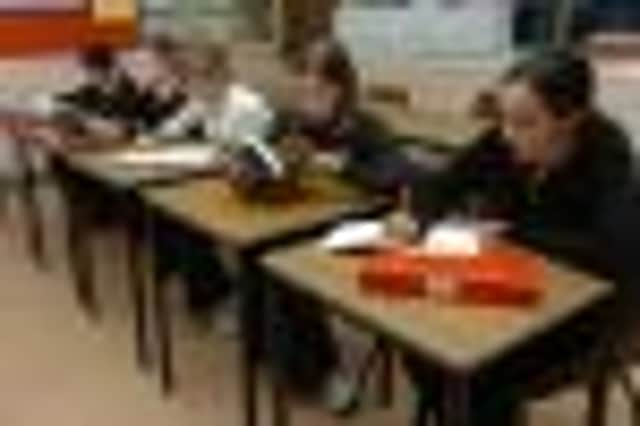Scottish schools risk creating ‘political illiterates’


A new report by Education Scotland into the state of social studies, the group of subjects that also includes geography and history, found one in five of the country’s secondaries do not have a modern studies teacher.
The report warns the situation is making it difficult for young people to acquire knowledge or skills relative to democracy and political literacy. It also notes that across schools as a whole, pupils did not have a good enough understanding of Scotland “developing as a nation” or the work and role of the Scottish Parliament.
Advertisement
Hide AdAdvertisement
Hide AdInspectors from Education Scotland – set up by the government last year to improve standards in Scottish schools – investigated modern studies provision at a time when the SNP is calling for the voting franchise to be extended to 16 and 17-year-olds in advance of the 2014 independence referendum. If granted as part of the referendum deal, it could pave the way for more young voters to be included in the electorate for future general and council elections.
Earlier this year, the EIS teaching union also called for all 16 and 17-year-olds to be given the vote ahead of the referendum, arguing that extending the franchise would help make teenagers “active citizens”, one of the key principles of Curriculum for Excellence.
But the report suggests many teenagers are disengaged from the political process and ignorant as to how the system works at Holyrood.
The report notes: “In these schools [where modern studies is not taught as a discrete subject], it is proving difficult for young people to acquire the appropriate knowledge or skills, for example in relation to democracy and political literacy.
“Across all sectors, staff need to continue to develop planning for the Scottish dimension, since evidence from the visits indicates that most children and young people do not yet have a good enough understanding of Scotland developing as a nation or the work and role of the Scottish Parliament.”
Liz Smith, the education spokeswoman for the Scottish Conservatives and a former modern studies teacher, said: “There is a big concern about resources in these subjects and how well we are teaching youngsters. All pupils in the upper years at primary schools and early in secondary schools should have a basic education in politics and economics.”
Grant Costello, chairman of the Scottish Youth Parliament, said: “When the SYP has campaigned for votes at 16 we often hear ‘young people aren’t ready’. If we don’t give them the chance to learn about politics what chance do they have to become engaged voters.”
Labour education spokesman Neil Findlay added: “Children who are in school now will be able to vote in the referendum in 2014, so ensuring they are aware of the issues surrounding that historic vote is crucial.”
Advertisement
Hide AdAdvertisement
Hide AdPupils taking modern studies in S3-S4 currently learn about a range of topics, including Scottish and UK politics, international relations and the political ideologies of countries such as the US and China. However, both Standard Grades and Intermediates will next year be replaced by Nationals, the new qualifications which are part of the Curriculum for Excellence.
Gordon Hunter, a teacher at Queensferry High School and the lead teacher for modern studies in Edinburgh, said: “Parts of the modern studies course certainly help pupils understand political institutions, but you can’t just accuse young people of a lack of knowledge – there are a lot of adults who don’t understand the political system and which powers are devolved to Holyrood, for example.”
A Scottish Government spokeswoman said:“Under Curriculum for Excellence, political literacy is built into every child’s education and is developed in a variety of ways including through modern studies.”